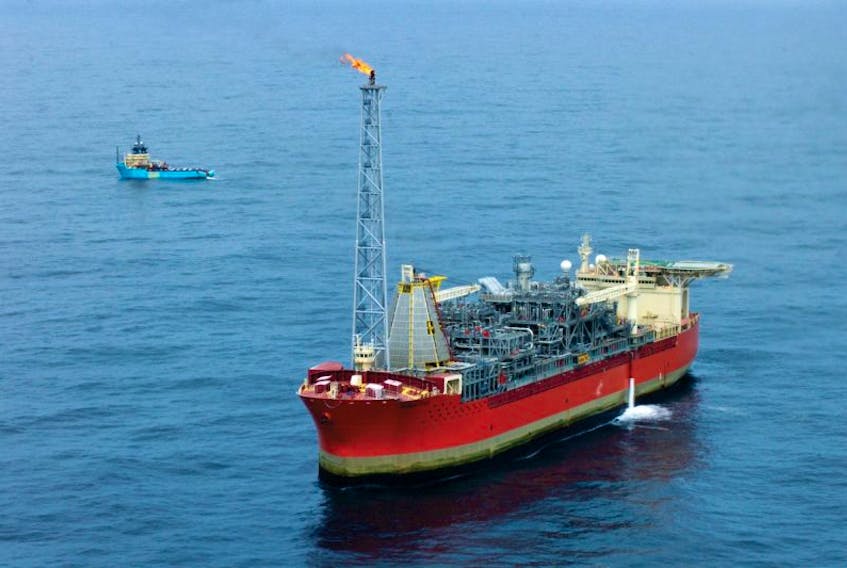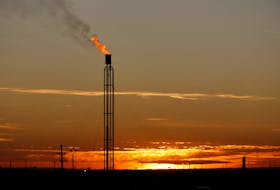Oil and gas companies operating in Newfoundland and Labrador’s offshore weren’t expecting any significant impact to their operations as a result of post-tropical storm Chris.
The storm, which was downgraded from a Category 1 hurricane as it passed into cooler North Atlantic waters on Thursday, was expected to make landfall on the southwestern Avalon Peninsula in the evening, bringing with it a significant amount of rain over a short period of time, along with winds gusts up to 100 km/h.
With a storm of this type, the heaviest rains are usually felt on the western side of the system, while the strongest wind and wave activity is felt on the eastern side.
Colleen McConnell, spokesperson for Husky Energy, which operates the White Rose Floating Production Storage and Offloading (FPSO) vessel, says the FPSO is designed and certified to operate in the types of environmental conditions presented by a storm of this nature.
Specific actions, she says, are dictated by the weather impacts expected.
“Normally, when we have tropical storm/hurricane impacts, we would follow our usual heavy weather procedures — for example, restricting over-the-side/outside work, and securing items that might move around in high winds/seas,” McConnell wrote.
“In many ways, it’s similar to what people might do at home, just on an industrial scale.”
As the system approached, Husky decided to delay a previously planned passenger transfer by ship.
“With regards to the drilling rig Henry Goodrich, we are preparing for our next work scope and have no active drilling work planned during the forecast period.”
Suncor Energy, operators of the Terra Nova FPSO, responded to a request for an interview by saying it doesn’t provide real-time updates on any of its operations, but that the normal measures associated with conditions presented by post-tropical storm Chris were taken.
ExxonMobil, meanwhile, was monitoring the storm, but didn’t expect any impact at Hibernia or Hebron.
As the storm approached Nova Scotia on Wednesday, ExxonMobil did remove 60 non-essential employees from the Sable Offshore Energy facilities, about 300 kilometres southeast of Halifax.
BP Canada also disconnected and moved the West Aquarius drilling rig.
The system was expected to track across the Grand Banks early Friday morning before moving out to sea and toward Europe over the weekend.
With files from The Chronicle Herald
Twitter: kennoliver79









